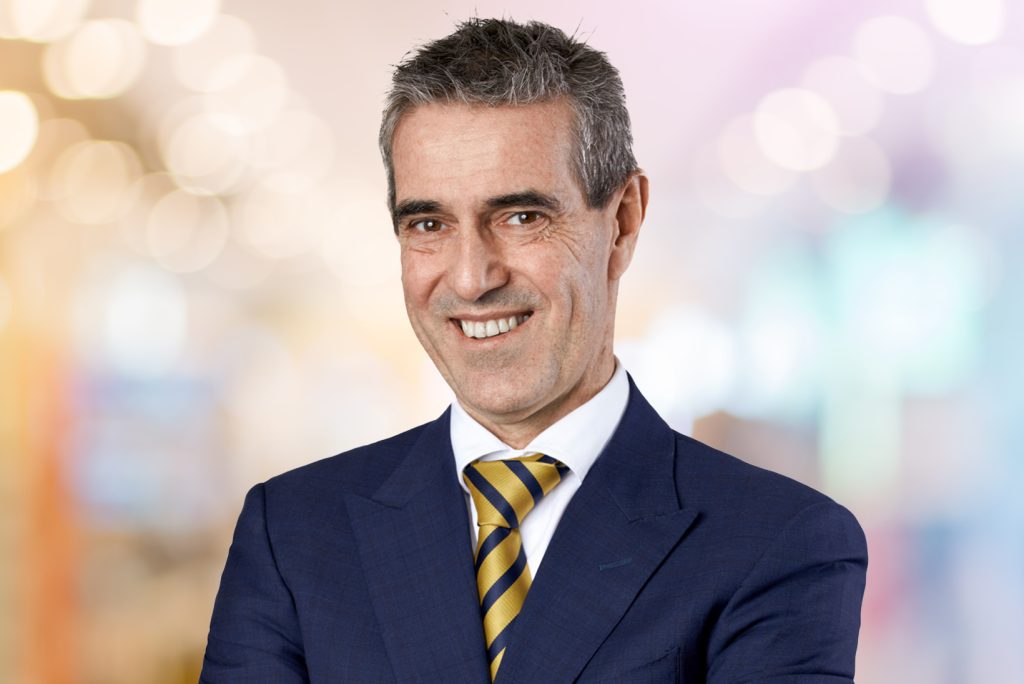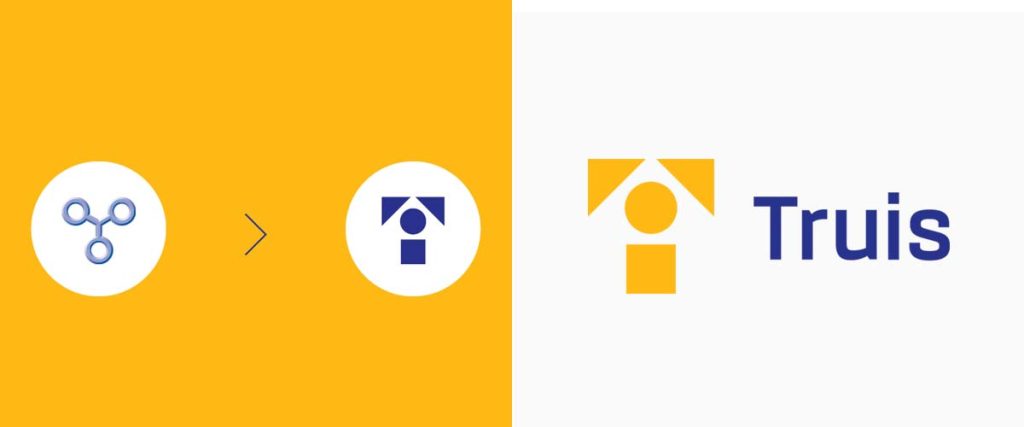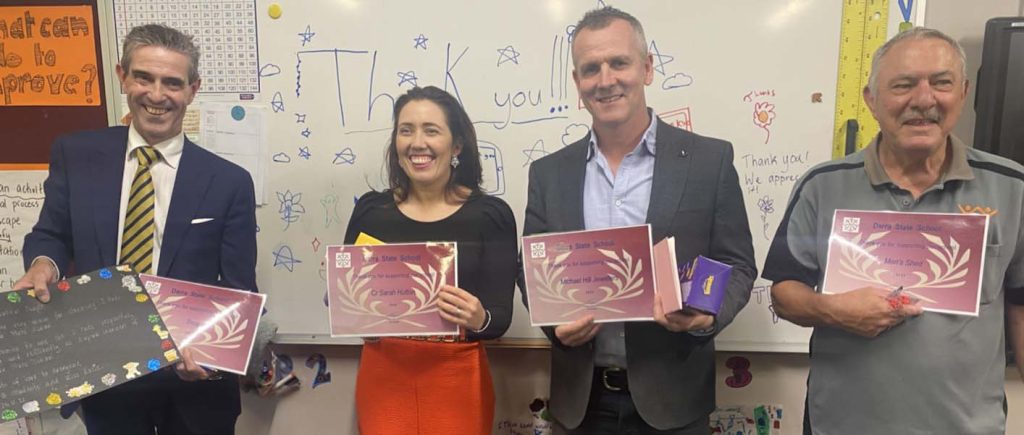December 6, 2023
“Don’t worry, Norm. It won’t happen. You’re a 40-year-old business, we’re not going to recommend that you change your name.”
“Norm, you need to change your name.”
Armed with a wry grin – arching over a tie wrapped in a Windsor Knot and emblazoned in new company colours – Norm Jefferies smiled, shrugged and shared the rollercoaster of emotions that accompany a business rebrand.
In 2019, then Computer Merchants engaged a government consultant to take a pulse check of the organisation, an unvarnished view on a company which had already existed four decades and survived 11 Prime Ministers in Australia.
The recommendation was a brand review – an outside assessment that kick-started interviews with clients, employees, distributors and vendors.
“It was to just see how our brand was going and whether we needed to make any tweaks,” Jefferies recalled. “It was only about the brand, not the name.”

After an iron-clad promise that the name founded in 1979 was off-limits, Jefferies proceeded with reassurance and relief. Change the logo, colour palette, iconography, typography and messaging if you must… just don’t change the name.
“But the feedback was that our name was confusing,” said Jefferies, speaking as Managing Director. “Computer Merchants was not what we did, we did different things to that.”
Jefferies was level-headed enough to accept such logic because even though this was a business built on the foundations of refurbished equipment, the company no longer operated within this space. An evolution into managed services spanning hardware, software, cloud, security, artificial intelligence (AI), data and analytics reenforced that fact.
But don’t confuse logic with reason.
“It was tough,” Jefferies acknowledged. “Firstly, I was attached to the name and secondly, I knew it would be expensive to change from making up a new one to the rebranding of the building, stationery etc.”
Below personal preference and financial factors however, a deeper reason for resistance existed.
“The founder of the business, Michael Gallagher, is still alive,” Jefferies shared. “The next guy that came on and ran the business was David McDade, he was my mentor but sadly he passed away several years prior.
“At that time, I was thinking of David saying, ‘you’ll never change the name’. The name was important, so was the Reflex Blue colour of the brand.
“When I was advised to change our name, I rang Michael and David’s wife, Majella, to share what our plans were. It was a big deal and very emotional to do.”
According to World Economic Forum findings, 25% of a company’s market value can be directly related to its reputation. In some instances, that share can reach 63%.
Reputation is earned and legacy in business is important, demonstrating an identity that can’t simply be replicated by a shiny new logo or name. Disrupting the status quo comes with a risk.
Contrary to popular belief, company rebrands are not all fun-filled brainstorming sessions with mood boards, multi-coloured post-it notes and blueberry muffins. They are challenging and confronting exercises that can pull at the heart strings.
Change is no bad thing, providing it’s strategic and respectful.
“Both were supportive and endorsed the change,” Jefferies noted. “I was most worried about David’s wife but she was very understanding”.
By 2020, the Brisbane-based company rebranded to Truis.
Change your name, strengthen your identity
Since time began, names have been an intensely important part of our identity. This is what people call you, what you respond to, what you understand about yourself.
Companies are no different but the process of creating one is akin to walking a brand tightrope – blindfolded and handcuffed.
Hit the bullseye and the impact can be profound. Miss the mark and the fall-out can be irreversibly damaging.
For example, the first idea on the whiteboard when naming Google was ‘BackRub’. Before sound intervention, The Gap was originally called ‘Pants and Discs’. Scrabble emerged out of ‘Criss-Cross-Words’.
History highlights that this isn’t an easy endeavour.
During the rebranding process at Truis, the team were presented with four options. Three directors now own the business – Jefferies plus Matt Dargie and Mark Loparow – so a combination of initials was one suggestion, alongside a range of other permutations.
“The altruism angle resonated well,” outlined Jefferies, who joined the company in 1992. “Truis is a made-up word which was inspired by this definition of doing good for mankind. That was important to us because we place huge value on sustainability, culture and community.”

Aligned to the principle and moral practice of concern for the happiness of other human beings, the name was inspired by the brand’s core values – empathy and transparency.
“Then they built the images which symbolises putting puzzles together,” Jefferies explained. “The ’T’ is like a person being sheltered by two triangles, giving the message that we’re here to protect our customers and help solve their problems.”
But the business hadn’t always been in the altruism space.
When Jefferies’ daughter was 17, she told her father and mother, ‘I don’t know if I want to have children because I’m worried about the state of the planet and bringing a child into the world when it could be a terrible place’.
“That was a real turning point for me,” Jefferies confirmed. “I’d always been legacy focused. When I bought into the business – after owning it for a year or two – I made up my mind that I was never going to sell my shares.
“I’d take them to my deathbed, give them to my kids so they can sell the shares or do whatever. Truis was about leaving a legacy behind but I learned that we should become vocal and make change to show support for these issues.”
Actions speak louder than words
Intent on backing up brand values with tangible actions, Jefferies and his team embraced sustainable practices and charitable causes at pace.
Within that spirit, some of the company’s achievements to date include:
“We track our carbon,” Jefferies said. “Our scope one and scope two is approximately 150 tonnes while our scope three is about the same.”
As the company expands – increasing headcount from 60 to 80 employees – the per tonne per person ratio continues to decrease in parallel. Solar panel investment happened many years ago also, with the added benefit of reducing monthly energy bills from $8000 to $3000 in the process.
Another key area of focus is creating clear messaging about the sustainability credentials of competing vendor products.
Currently, Electronic Product Environmental Assessment Tool (EPEAT) offers the best comparison but empowering sellers to help customers understand the environmental impact of each product purpose is the end goal.
“EPEAT is a good tool but we haven’t quite built a way of incorporating that into our sales team,” Jefferies acknowledged. “But we’re getting close.”
Taking such a stance on sustainability – and backing it up with dollars – may appear commonplace but underneath the surface, this represents a bold statement of intent.
Global vendors can take the stage to wax lyrical about saving the planet and can support such rhetoric with cold hard execution and investment. Homegrown companies born in the Australian market are seldom afforded such opportunity however.
Most local ecosystem players – such as managed service providers (MSP), system integrators (SI) and value-added resellers (VAR) – have sound intentions but lack the resources or investment to make sustainability a reality. Throw in a debilitating economy and the ‘justifiable reasons’ for inaction start to mount.
“We’re starting to see the impact of rising interest rates on the buying cycles of customers,” Jefferies assessed. “The market isn’t as strong and the volume of deals per day and the average deal size are both decreasing – some by as much as 15%.
“It’s a challenging market but we’re committed to sustainability and I think we’re ahead of the curve.”
In a fitting sense of irony, Truis started out as a computer broker and through the company’s increased sustainability efforts, “will probably end up back there to some degree”.
The business now specialises in taking old products from customers – such as 100-150 notebooks – to refurbish and then donate to charitable organisations such as GIVIT. In that sense, the brand has come full circle – connecting the heritage of Computer Merchants with the values of Truis.
“This type of work brings us back to our grass roots,” Jefferies said. “Third-party logistics in terms of getting equipment from the client, managing the device, erasing the data and packaging it up as a reusable product.
“One of our team usually grabs 10 laptops, takes them home and has his young boys help out with the project. He’s doing this in his own time and this is a big part of our culture.”

Truis uses Culture Amp to measure company mood, a market-leading employee experience platform.
When first surveying staff before the brand change, the company scored 74 out of 100 from a culture perspective – viewed as slightly above average in the technology sector across Australia.
After rebranding and committing to “altruistic” activities, that score jumped to 87 – the top 10 percentile by industry in the country.
“It wasn’t necessarily because we changed our name but we were doing things that were symbolised by the name,” Jefferies added. “In essence, that is what true altruism is all about. Our people like that as an identity – they like that we stand for those things.”
Specifically, the three areas that improved the most since the rebrand was culture, recruitment and bottom line. This was supported by a revamped digital strategy and search engine optimisation (SEO) approach.
“As Computer Merchants, we’d factored SEO and paid digital advertising into our marketing strategy but without a strong brand – these investments did little to move the needle,” acknowledged Jenna Brooker, General Manager of Marketing at Truis.
Since the rebrand, the company’s website traffic has increased from 300 visitors per month to over 7,000 visitors per week. Content generation has also ramped up, contributing to a 430% increase in leads.
“Brand isn’t an important thing, it’s everything,” Brooker added.
From a market perspective, a few customers naturally miss the old name – likely for nostalgic reasons – but overall, the business didn’t lose one client because of the rebrand.
“It’s good to have a name aligned with what’s happening around the world,” Jefferies accepted. “We can pivot to something else in the future if we need to and the relevance of the name will still remain.
“But regardless of our name or brand, looking after our people is our primary goal. Happy staff means happy customers.”
Inform your opinion with executive guidance, in-depth analysis and business commentary.